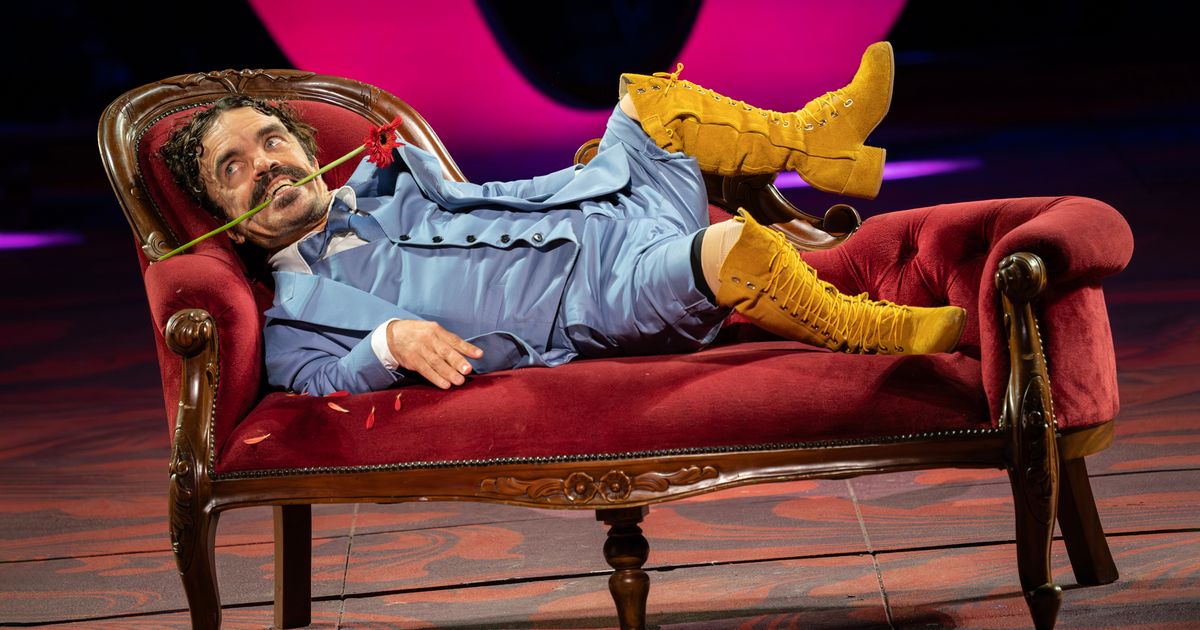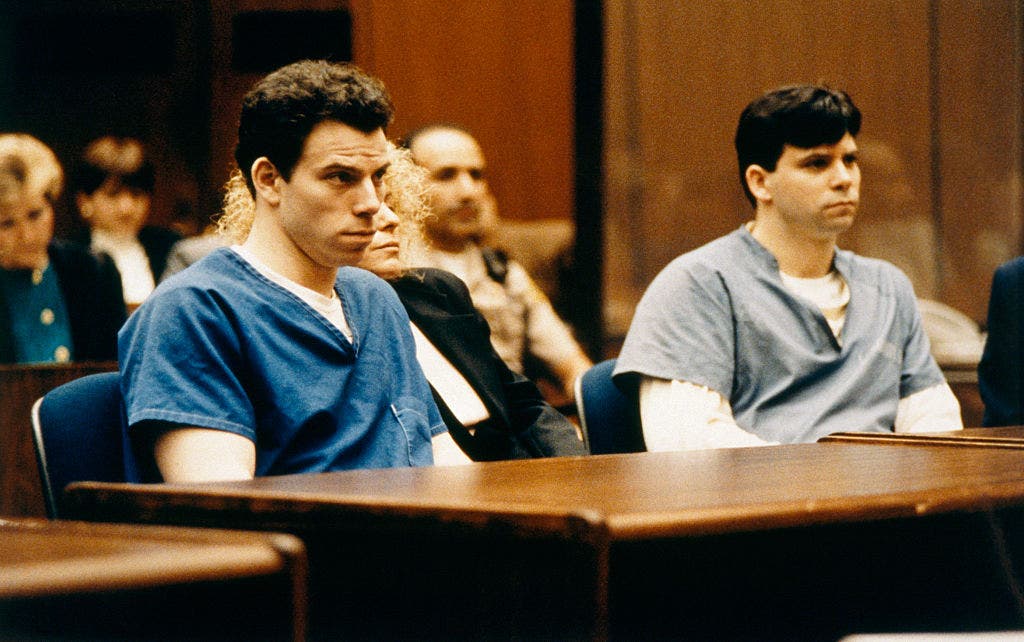Peter Dinklage in Twelfth Night.
Photo: Joan Marcus
The last time I wrote about Twelfth Night at the Public’s Delacorte Theater, I took issue with a performance that sacrificed the play’s rich ambiguities for a relentless sing-along perkiness, a too-wide smile that, while part of a meaningful civic project, lacked theatrical teeth. Now, the whirligig of time has brought all three of us back around: Twelfth Night, in a fancy new production directed by Saheem Ali and featuring Lupita Nyong’o, Sandra Oh, and Peter Dinklage; the Delacorte, after 18 months dark for an $85 million makeover; and me, after my own hiatus from bright lights and aisle seats, now writing this with a baby asleep in my lap.
It’s good to be back, and the Delacorte looks great, but I’m beginning to worry that when it comes to Shakespeare in the Park, the Public Theater employs some kind of tacit house mandate, at least where the plays classed as comedies are concerned. Fun will be had. Whatever the nuances of the text, the audience must end the show clapping along to an upbeat curtain-call jamboree. Ali’s take on the tale of Viola (Nyong’o) — separated in a shipwreck from her twin brother, Sebastian (played by Nyong’o’s real-life sibling Junior Nyong’o), and then tossed into a dizzy love triangle after disguising herself as the servant boy Cesario — is hip and handsome, like a natty Hinge date who’s unfailingly good-natured yet somehow short on sincerity. Maruti Evans’s set is a department-store-window splash of crimson, a wide red floor backed by enormous red letters that spell out the play’s subtitle, WHAT YOU WILL: Illyria not as place but as meta-theatrical wink. Last Twelfth Night, Shaina Taub supplied a surplus of cheekily vaudevillian jazz-funk. This time, Michael Thurber has composed a slinkier, more ambient set of tunes for Shakespeare’s lyrics, delivered here mostly by Moses Sumney as an electric-guitar-toting Feste who looks like an escapee from a Dries Van Noten runway.
Sumney, a multihyphenate musician, has an impressive falsetto and more than enough vibes to go around, but here in his stage debut, he suffers from superficiality, and he’s not alone. A pleasant enough but ultimately facile engagement with character typifies Ali’s production. Sumney looks cool, but I don’t know who his Feste is or why he should serve as our guide through the tangles of deception and desire on the play’s fantastical Balkan shores. Shakespeare provides the why: Feste, a nomadic licensed fool with a wit drier than hardtack and a raptor’s eye for human folly, gazes on Twelfth Night’s midsummer madness with an aloof, sad-eyed half-smile. He bears witness, providing a crucial thread of ambivalence that adds tensile strength to the play’s braid of raucous silliness and romantic joy. When he sings, we’re reminded, in mellifluous tones, of our own mortality. “Youth’s a stuff will not endure,” he warns the drunken revelers Toby Belch (played here by John Ellison Conlee) and Andrew Aguecheek (Jesse Tyler Ferguson). “Come away, come away, death,” he croons to Duke Orsino (Khris Davis), himself drunk on his own performance of unrequited love for the neighboring countess, Olivia (Oh). “The rain it raineth every day,” Feste bids us farewell in Twelfth Night’s gorgeously pensive closer.
Not here, though. While I won’t spoil the finale, I’ll simply say it must have tripled Oana Botez’s costume budget — and while the cast is sashaying and voguing, getting us to clap along, it’s easy to miss the fact that Ali has cut the crucial part of the closing number’s refrain, the part that reminds us that every silver lining has a cloud. Meanwhile, Feste’s “Come away, death” is gone entirely, replaced by Viola singing a sweet ballad to Orsino in Swahili (she and her brother pepper their dialogue with the language, implicitly the characters’ native tongue). It’s a poignant enough idea for Viola to sing Orsino a love song in a language he can’t understand, but in the doing, it winds up simply pretty. Nothing of substance bubbles between Nyong’o and Davis. Their interactions are cute, full of Nyong’o doing derpy manpersonation à la Mulan, rather than being undergirded by any deeper sense of yearning on her part or bisexual panic on his. Both could undoubtedly do more, but Ali is happy to keep Nyong’o chipper and Davis hunky. His Orsino lifts weights, crushes protein smoothies, and displays his many-splendored abs while Cesario gives him a rubdown, and it’s all amusing. But it’s not enough.
This isn’t a report by the fun police: Twelfth Night is bursting with life and humor and should by no means be a moody slog, but Ali’s production is too intent on jollying us along. In doing so, it misses that crucial Shakespearean paradox — that these plays’ extremes offset and enrich one another. You can’t reach this one’s heights of radiance and hilarity without exploring its depths of uncertainty, heartache, and even cruelty. Avoid the latter and you flatten the former. Nothing hurts; nothing transcends. This cheerful hollowness is especially palpable in how Ali treats the story’s downstairs plot, in which the nasty prank inflicted on the priggish steward Malvolio (Dinklage) by Toby, his buddy Fabian (Kapil Talwalkar), and the chambermaid Maria (Daphne Rubin-Vega, wearing a caped, corseted baby-blue confection that feels weirdly at odds with Maria’s status) never develops any real bite. Ali has cut the show to an intermissionless 115 minutes, and these scenes receive a lot of the dicing. That’s not inherently a bad thing, but here it renders the characters thin and rootless. Humor that has been lost from the words themselves is reinfused via prop comedy — Toby and Andrew do whippits and snort coke in a hot tub; the irate Malvolio demolishes their stash with a hair dryer — but Conlee’s Toby feels underpowered, and Ferguson’s Aguecheek lacks pathos. “I was adored once too,” says Andrew, in a moment that’s capable of the most devastating kind of silliness, and vice versa. Here, the line floats right by. It’s not Ferguson’s fault — Ali hasn’t laid the groundwork for depth of feeling or breadth of humanity in these characters. It’s no surprise that, when the play’s last act rolls around, he cuts the troubling end of their arc all together. There’s a dance number to get to.
Dinklage, who’s clearly capable of nuance and intensity, is perhaps most hampered by the show’s skim-the-top approach. While he throws himself gamely into Malvolio’s exaggerated rigidity, he ends up tipping past clown into cartoon. He gets laughs early on for his ramrod-backed, short-stepped drum major’s walk and the motormouthed stridency of his delivery, but he’s too quick to take these giggles to the bank, ultimately building a character more out of affectations than specific experiences, discoveries, and vulnerabilities. Ali could be giving him the space to crack open, to become soft and woundable and thereby all the funnier. Instead, the director is more interested in moments of cheeky choreo, such as Conlee & Co. concealing themselves behind Dinklage using large 3-D letters that spell out TREE — the offspring of the in-jokey set.
Shenanigans like these aren’t unenjoyable, but neither are they entirely fulfilling. It’s a happy relief, therefore, that Oh blows through this Twelfth Night like, as Orsino might say, the sweet wind “that breathes upon a bank of violets, / Stealing and giving odor.” Her Olivia is a giddy, glowing delight — playful and sexy and grounded, as full and compelling a human being as this production will allow. She finds the play’s joy without resorting to gimmick, accessing her character’s essential truth and beauty while still allowing for the exuberant artifice of farce. In her, one can glimpse a broader, deeper Illyria, a Twelfth Night that — because it is as full of wondering as of wonders — is indeed most wonderful.
Twelfth Night is at Delacorte Theater through September 13.
See All













